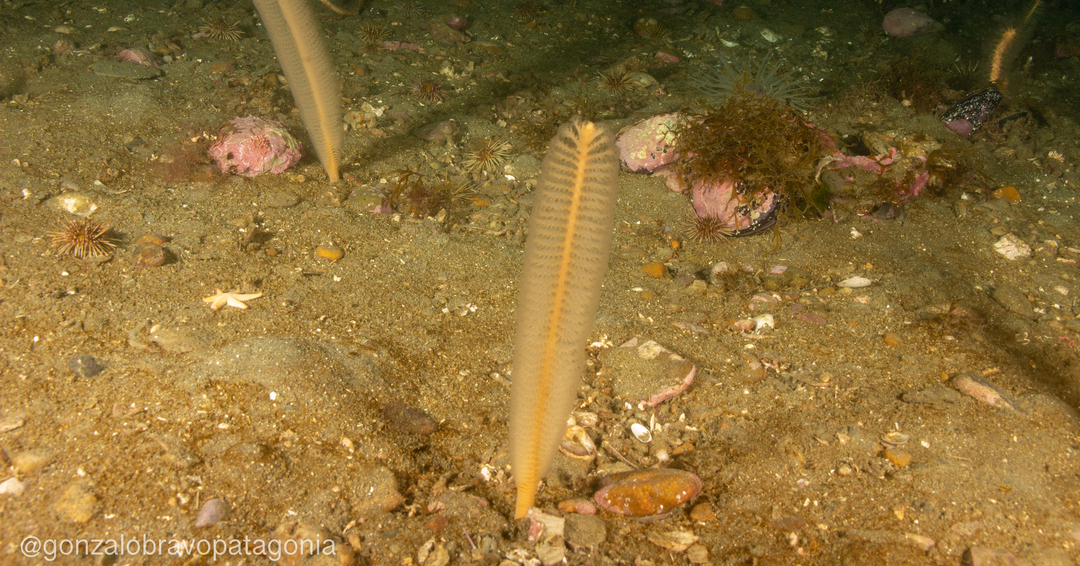Project title: Securing the Future of Cold-Water Corals in Argentina’s Deep Sea
Project lead: Prof. Erik Cordes
Co-applicants: Dr. Daniel Lauretta, Dr. Maria Emilia Bravo, Dr. Santiago Herrera, Dr. Andrea Quattrini
Countries involved: Argentina, USA
Takes place: Argentina
Supporting institutions: Temple University (USA), CONICET (Argentina), Universidad de Buenos Aires (Argentina), Lehigh University (USA), Smithsonian Institution, National Museum of Natural History (USA)
Total budget: USD $1,489,102
Duration: January 2025 – December 2027
Project overview
Cold-water corals (CWC) in the Argentinean Exclusive Economic Zone (EEZ) face significant threats from climate change, ocean acidification, and the increasing industrialization of the deep ocean. Human activities, such as offshore energy development, deep-sea mining, and pollution, are encroaching on these fragile ecosystems. Argentina’s deep-water exploration for oil and gas (O&G) is rapidly expanding, with the first deep exploratory rig set to be constructed by 2024. Despite the rich biodiversity of CWC along Argentina’s continental slope, there is a lack of baseline data on species presence, population status, and habitats, especially in areas targeted for O&G exploration. Restoration efforts for deep-sea corals have been minimal, mainly due to the challenges of working in such deep environments. However, innovative techniques, such as using 3D-printed coral models for habitat provision and coral recruitment, are being explored.
This project aims to explore, document, and protect the vulnerable deep-sea ecosystems off Argentina’s coast, particularly the cold-water corals. Using cutting-edge technology, the team will be the first to establish a comprehensive baseline of CWC status in relation to O&G exploration areas. The project will also pioneer active restoration efforts in the southwestern Atlantic, drawing on successful techniques used in other regions, such as the Gulf of Mexico.
Specific Objectives
- Establish a Baseline for CWC: Document the species composition, abundance, habitats, and oceanographic conditions of CWC within the Argentine EEZ, particularly in areas under pressure from the O&G industry.
- Inform Policy: Transfer this new knowledge to policymakers to guide conservation and management efforts.
- Initiate Restoration: Start the first active restoration program for CWC in the southwestern Atlantic.
How the Objectives Will Be Met
- Baseline Establishment: The project will focus on three key areas within the Argentine EEZ, including the northern continental slope, the Patagonian Continental Margin, and the sub-Antarctic region of the Drake Passage. Field surveys will be conducted using advanced tools like a towed camera-sled system, remotely operated vehicles (ROVs), and environmental DNA (eDNA) sampling to monitor coral distribution and habitat types.
- Biodiversity Surveys: Extensive video surveys and physical sampling will be performed to identify the biodiversity of CWC and associated species. This will include assessing habitat provision by CWC and interactions with commercially valuable species.
- Restoration Efforts: Restoration activities will include deploying 3D-printed coral structures in areas impacted by trawling, with plans to revisit these sites in the future to assess colonization and habitat use by other species. The project will also involve the local community through workshops and immersive experiences to raise awareness and influence conservation policies.
Impact of the Project
This project will foster increased collaboration between Argentina and international partners, leading to new species discoveries and the collection of approximately 500 specimens for taxonomic and genetic research. It will lay the groundwork for future restoration initiatives in the deep waters of the southwestern Atlantic, significantly advancing Argentina’s capacity for CWC research and conservation. The project will also strengthen local biodiversity and ecology research infrastructure, with a focus on upscaling CWC research in the Global South.
Major Highlights
- First in situ observations and sampling of CWCs in Argentina’s deep-sea areas, contributing to global biogeographic knowledge.
- Unprecedented financial support for CWC research and restoration in Argentina.
- Initiation of the first coral restoration project in the deep waters of the southwestern Atlantic Ocean.
Photo: coral Stylatula sp. Credits: Gonzalo Bravo (CC BY-NC).

